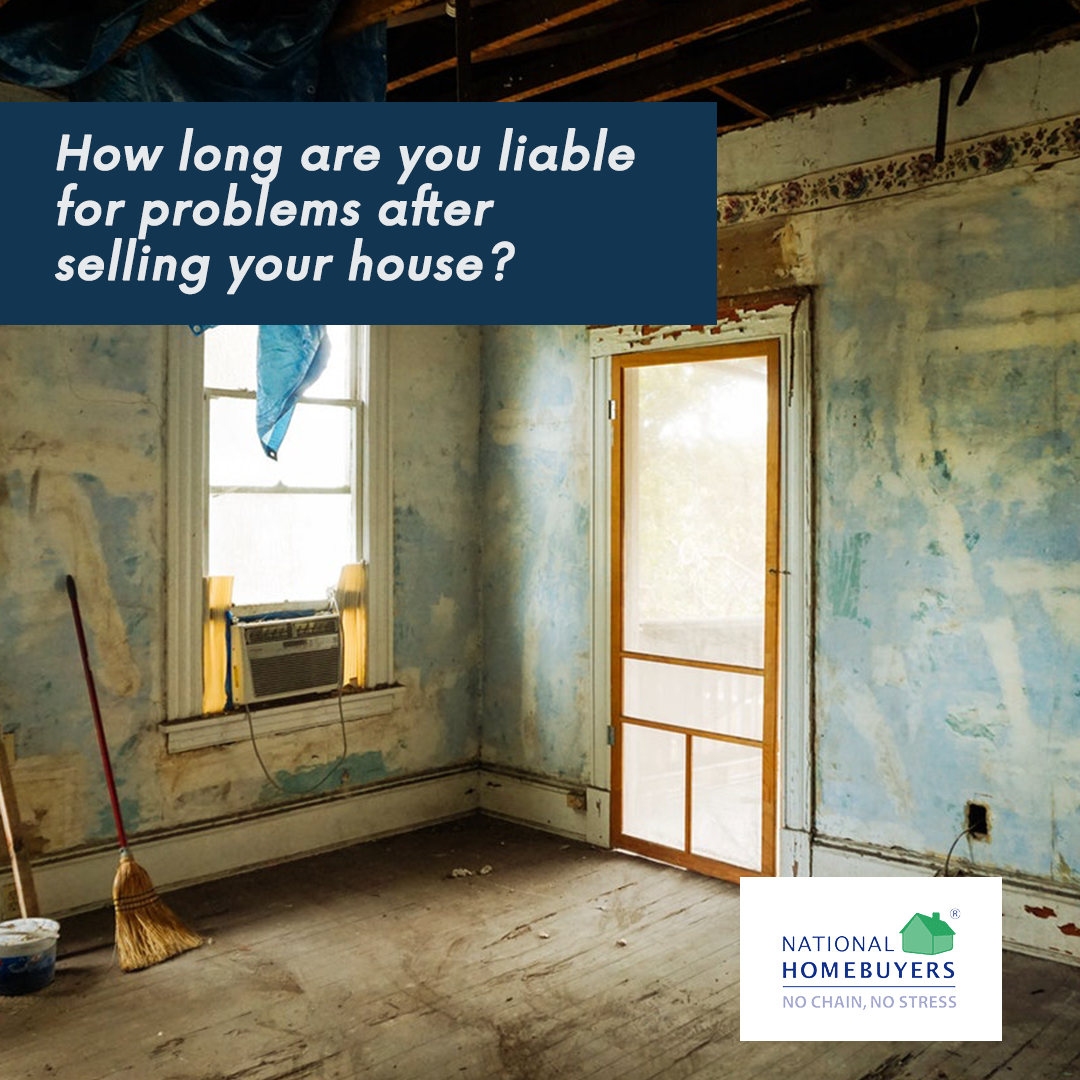How to sell your house when separating or divorced?
How to sell your house when separating or divorced?
Being in a committed long-term relationship offers a range of benefits, especially when you can combine your incomes to buy a home together. Sadly, however, these relationships don’t always last. So how do you go about selling your home when you are separating or divorcing?
Do you have to sell your house when divorced?
Whether or not you have to sell your house in a divorce is entirely dependent upon several factors. The most important of which is the amicability between both parties throughout the break-up, and the ownership status of the property1.
There are three main approaches to handling the division of property assets during a divorce, and these are as follows:
- Purchase your ex-spouses share – If the break-up was as harmonious as-can-be, the important question is whether or not either individual can afford to live in the property alone – taking into account mortgage payments, bills and living costs. If they are able to afford the home themselves, and the ex-partner is happy to for them to purchase their share then an exchange can be carried out by a solicitor relatively simply2.
- Sell the property and divide the profit – If neither party can afford to purchase the other’s share, then it is a good idea to sell the property and provide one another with a reasonable amount of capital to start their new life2.
- Agree to keep the home as a future investment – If both parties would prefer to avoid making rash decisions, they can agree to keep the house in both of their names until a decision is made at a later date.
Of course, there are many variables that can make the division of assets much more complicated3. These include whether or not you have dependents such as children (which can often lead to a ‘Mesher’ order from the courts3) and whether or not both individuals have a registered interest in the property1, and who is named on the title deed.
Can you be forced to sell your house in a divorce?
More often than not, yes4. If your former spouse wishes to seek a share of the profits from the sale of your home, you will always have to comply with the request unless you can offer that individual a sum of money that they consider fair compensation2.
In two thirds of all separations and divorces the home that was formerly shared ends up being sold for the sake of freeing up capital which many believe is a result of the growing disparity between wage rises and house prices over the last 25 years, as few couples would have been able to purchase their current home as an individual5.
If both individuals wish to keep the home, a divorce court may order the home to be sold during proceedings to keep things fair. However, there are exceptions to these rules and these exceptions often occur when children are involved.
If a court decides that the sale of the family home will create unnecessary stress for the children, then a judge is likely to employ a ‘Mesher’ order. This order rules that the sale of the home must be deferred until a specific event occurs, such as the youngest child turning 18. The courts will also decide which individual would be best suited to stay in the family home to look after them3.
The most important thing to remember is that regardless of who has invested more into the property, if both of you are listed as joint tenants (where the home is owned equally as an asset without a share agreement), or even as tenants in common (where the ownership of the home can be divided up in terms of shares) then you will always need your ex-spouse’s approval before any decisions can be made, with few exceptions6.
Can you sell a house if one partner refuses?
Yes, you can – but if you are no longer on good terms with your ex-partner, it is likely that you will need a court order to ensure that the marital home will be placed on the market7.
As you may have noticed, the running theme throughout this article is that courts do not necessarily have to get involved in asset distribution if the separating couple can do it themselves. But when emotions are high, it can often take a judge’s ruling to help the situation become unstuck.
Sadly, there are many individuals going through divorce who are very bitter towards their ex-partner and will use the divorce process to hurt them. This can involve falsifying information, hiding assets and capital from their ex-partner, or even stealing money from joint accounts8. However, most of these individuals are not experts at evading the courts – and as most divorce rulings are made at the court’s discretion, performing actions that show a lack of character will not curry favour with the judge8.
Who can sell your house when divorced?
Most couples who separate and are happy to sell a shared home will choose to do so once the legal side of the separation or divorce is complete. This is because the divorce can be a huge source of stress for both parties and the likelihood of making a rash decision can be heightened. Others, however, just prefer to sell the house fast so that they can move on with their lives.
Regardless of the time a couple chooses to sell, there are a number of options available to them, some of which are extremely helpful if a sale needs to be completed in a short space of time.
- High street estate agents are the traditional route for a house sale. Of course, they will only be willing the list the property if all legal proceedings have been finalised and for good reason. If the status of ownership has not been resolved, any potential buyers are likely to be deterred and this reflects badly on the agent’s reputation.
- Online estate agents offer the same services as a high street agent, albeit at generally a lower rate. While many house-sellers see this as a good thing, more often that not you are choosing to forgo the services of a high street agent who is likely to have a better knowledge of sold house prices and processes in that particular area.
- In the age of technology, more and more vendors are choosing to try direct sales. The benefits of this approach are obvious – no agency fees, no obligations. Unfortunately, many of these people are unaware of the intricacies of the selling a house, and ultimately choose to sell via an agent once they realise how hard it can be.
If your need to sell a house faster than your average vender, then you also have access to the following options:
- Auctions are a great way to sell a house fast, but it may not have a happy ending. When you choose to sell in an auction you must pay a fee regardless of whether or not the property sells. Furthermore, if you fail to set a reasonable reserve price for the home, it may sell for much less than you’re expecting – and there are no refunds.
- A more popular option to sell your house fast is to enlist the help of a house-buying company. House-buying companies such as National Homebuyers specialise in cash sales and can buy your home from you in as little as two weeks from first point of contact. Obviously, these companies are offering a convenience service and are likely to offer slightly below market value – but you are always provided with a free quote that carries no obligation and can be turned down.
How is a house sale divided in a divorce?
Again, the profits from a house sale can be divided very easily if the separating couple are willing to discuss the issue in a reserved manner, but this is not always the case.
If you manage to gain a judge’s ruling to sell a house during a separation – regardless of whether your ex-partner refuses – it should be worth noting that you may not get as much of the profit as you had hoped9.
You may find yourself with a reduced share of the profits if your ex-partner is able to prove any of the following:
- That they have shouldered the majority of expenses made for the home including repairs, renovations and extensions9.
- That they have paid a much larger proportion of the living costs for both of you during the time that you lived there, including utilities and council tax9.
- That they provided a higher mortgage deposit contribution when the property was originally bought9.
- That you have attempted to conceal earnings or have kept a secret account without your partner’s knowledge9.
Many individuals who have lived with a partner for many years have found that, unbeknownst to them, they did not have a strong legal standing, nor a recorded financial interest in the home that they lived in together, and only learn about their situation during what is already an extremely stressful and upsetting time of their lives3.
Are you going through a separation and need help to sell your home fast? Why not ask National Homebuyers for advice, as we buy any house. Call 08000 443 911 or request a call back to find out how much you could get for your property before it’s too late.
Sources:
1 Anon. (2019). Protecting your home ownership rights during divorce or dissolution. Available: https://www.moneyadviceservice.org.uk/en/articles/protecting-your-home-ownership-rights-during-divorce-or-dissolution. Last accessed 26th Nov 2019.
2 Anon. (2019). Dividing up money and belongings when you separate. Available: https://www.citizensadvice.org.uk/family/ending-a-relationship/sorting-out-money-when-you-separate/dividing-up-money-and-belongings-when-you-separate/. Last accessed 26th Nov 2019.
3 Osborne, H. (2013). Divorce: what happens to the family home? Available: https://www.theguardian.com/money/2013/feb/15/divorce-what-happens-to-the-family-home. Last accessed 26th Nov 2019.
4 Hutson, J. (2019). Can my former spouse force the sale of our marital home? Available: https://www.harrison-drury.com/divorce/spouse-force-sale-marital-home/. Last accessed 26th Nov 2019.
5 Pickford, J. (2019). Divorce: dividing up the family home. Available: https://www.ft.com/content/72ed19d0-decd-11e9-b112-9624ec9edc59. Last accessed 26th Nov 2019.
6 Anon. (2019). Joint property ownership. Available: https://www.gov.uk/joint-property-ownership. Last accessed 26th Nov 2019.
7 Anon. (2019). Dividing the family home and mortgage during divorce or dissolution. Available: https://www.moneyadviceservice.org.uk/en/articles/dividing-the-family-home-and-mortgage-during-divorce-or-dissolution. Last accessed 26th Nov 2019.
8 Anon. (2015). We’re getting divorced and I think my partner is hiding money from me – what can I do to find out? Available: https://www.thisismoney.co.uk/money/experts/article-3173459/We-getting-divorced-partner-hiding-money-do.html. Last accessed 26th Nov 2019.
9 Anon. (2019). Money and property when a relationship ends. Available: Money and property when a relationship ends. Last accessed 26th Nov 2019.






